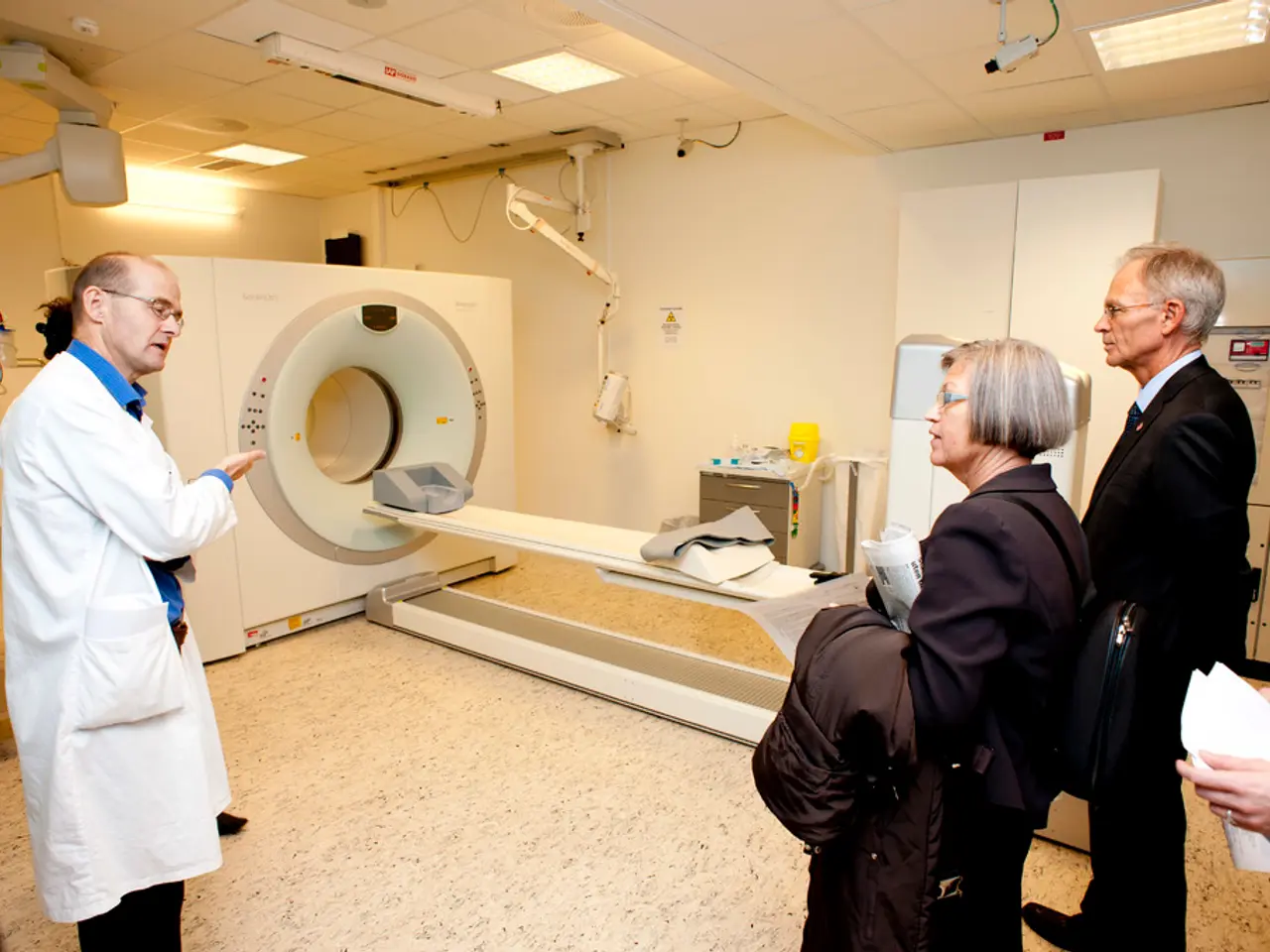Encouraging specialized medical check-ups via incentives
In a bid to address the growing challenges in Germany's healthcare system, the coalition of the Union (CDU/CSU) and SPD has proposed a binding system for primary care. This system aims to ensure patients primarily visit a general practitioner for referral to specialists.
Under this proposed model, patients are guaranteed an appointment with a specialist within a certain time frame. However, the length of this guaranteed time frame remains undetermined. The details of how patients will access specialists or hospitals when appointments cannot be made within the guaranteed time frame are also not specified.
Federal Health Minister Nina Warken is considering financial incentives to achieve more targeted access to specialist appointments. Warken has proposed the idea of patients paying a fee to see a specialist directly without going through a general practitioner, as well as a bonus for patients who go through a general practitioner before seeing a specialist.
The Association of General Practitioners has expressed support for the coalition's plans but has not commented on the specifics of how patients will access specialists or hospitals when appointments cannot be made within the guaranteed time frame. Similarly, the Association does not express any opposition to the idea of financial incentives proposed by Warken.
However, there are concerns about the current shortage of general practitioners, pharmacies with medical services, and functional digitization. The German Foundation for Patient Protection has emphasized that addressing these shortcomings is necessary before introducing a general practitioner obligation.
The Association of General Practitioners also notes the effects of demographic change on practices, particularly the increase in chronic illnesses and appointments needed. Warken suggests further digitization and a greater role for pharmacies as part of the solution.
It is unclear whether the financial incentives proposed by Warken will be included in the final binding system. The proposed system does not address potential challenges or limitations in the availability of general practitioners or specialists.
Older, chronically ill people could particularly benefit from the proposed model, according to the Association of General Practicians. If a specialist appointment cannot be made within the guaranteed time frame at a practice, patients should have the option to be treated by a specialist or in a hospital.
The parties that signed the coalition agreement to introduce a binding system for primary admission of patients to general practitioners are the Union (CDU/CSU) and SPD. Possibly also Bündnis 90/Die Grünen are involved in the coalition forming the government, but the agreement specifically mentioned for the primary care system refers to Union and SPD.
The proposed system aims to improve access to specialist care, but its success will depend on the establishment of necessary structures and the resolution of several key uncertainties. The details of the system's implementation and the measures to address the shortage of healthcare professionals will be crucial in ensuring its effectiveness.
Read also:
- Chiropractic Manipulations and their Impact on Pain Relief
- Researchers Unearth Remarkable Creature Capable of Parturition of Two Distinct Species
- Honoring Ayurveda Day 2024: Tapping into the Power of AYUSH for Worldwide Wellbeing
- casesof West Nile virus resulting in fatalities in Greece, with seven individuals confirmed to have succumbed to the disease





